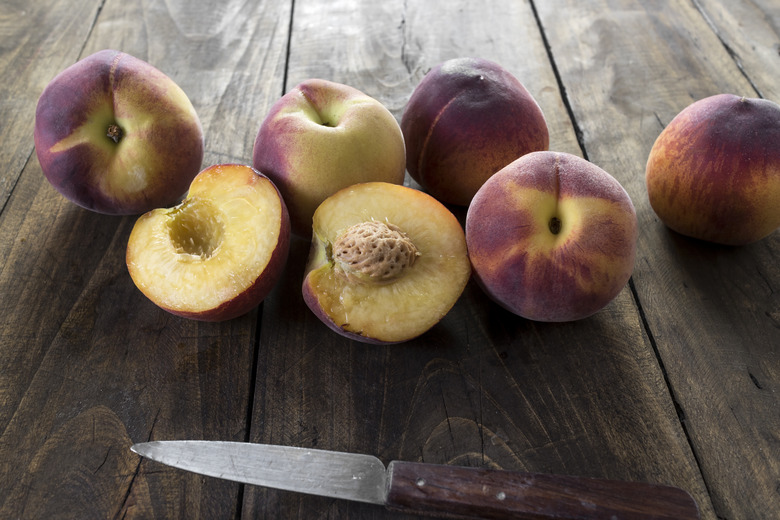Cherry, Peach, And Apricot Pits Could Kill You
It's actually pretty frightening that we're putting these things so close to our mouths. Cherries, peaches, and apricots are harboring a dark secret buried in their flesh. Each pit, big or small, contains potentially dangerous levels of a harsh chemical: cyanide.
If you're wondering where you've heard that name before, it's the chemical used in chemical weaponry, to kill pests, and to dissolve metals during mining of gold and silver. If it serves all of those purposes, it must be kind of corrosive, right?
The cyanide in fruit isn't the same compound as the hydrogen cyanide found in chemical weapons; in small doses, the cyanide in stone fruits can be handled by the body's natural processes. The body takes the harmful substance and transforms it into thiocyanate — an innocent compound that gets excreted through your urine. In large doses however, cyanide of any kind can do some real damage. It prevents your cells from using available oxygen, resulting in cell malfunction and death.
How much cyanide constitutes a "large dose"? We looked it up, and were a bit shocked: It seems that a single cherry pit contains enough cyanide to be potentially lethal for a 160-pound human. A potentially lethal dose of cyanide is just 0.1 grams. A cherry pit carries approximately 0.17 grams in a single seed.
Don't rush to the hospital if you swallow a cherry pit, though. The cyanide is contained inside the pit's sturdy exterior. You can't digest the outside of the pit — so if you swallow it, the chemical is just passing through you, safe and sound inside the pit's hard shell. But if the pit shatters somehow — or if you bite it open — do not swallow. (You likely won't anyhow since it will taste abominable.) Spit the broken pit out and never do that again.
Who knew that fruit was one of the most dangerous things in your kitchen?
